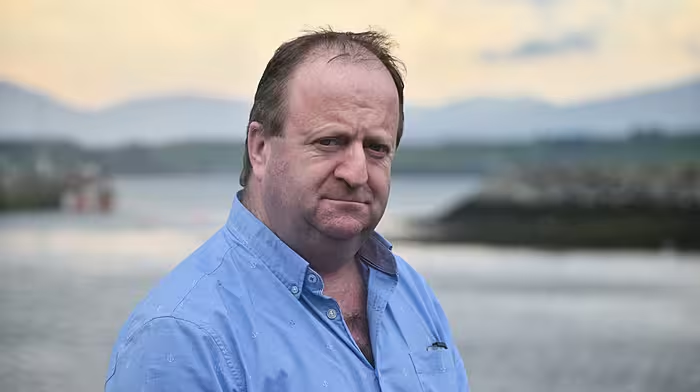Sexual violence is a problem that often starts at secondary level. Local experts are appealing to parents to open up the conversation around consent with their children, especially their sons.
This summer saw a noticeable increase in the numbers of young people from West Cork presenting for examination at the city’s Sexual Assault Treatment Unit (SATU).
This included both male and female, and all gender identities, presenting at the clinic which is completely free, confidential and available 24/7.
Lead forensic nurse examiner at SATU Margo Noonan said the problem of sexual violence is far more prevalent than people realise. Last year they saw 111 new cases at the clinic in the South Infirmary Victoria University Hospital, and so far this year they’ve seen 85, with a spike expected this month to coincide with ‘Freshers Weeks’ in third level institutions.
‘September is also a difficult month for people, families can be under additional financial pressure with back to school costs and people who commit violence need minimal excuses to hit out,’ she said.
Their annual report for 2020 stated that the risk of sexual assault within a home had increased with 47% of all incidents occurring in either the victim or the assailant’s home, compared to 28% in 2019. Furthermore 42% of patients described the assailant as a ‘friend’ or an ‘acquaintance greater than 24hrs’ compared to 30% who used the same descriptions the previous year.
During the time periods which saw the enforcement of level 5 lockdown, there was an increase of physical injuries to those who presented to SATU. Between March 27th and May 18th 2020, 54% of patients presented with physical injuries compared to 25% the previous year.
While there was no marked increase in the volume of injuries during the second level 5 lockdown between October 21st and November 30th 2020 and the same period in 2019, of those that did present with injuries, 22% required referral for injury follow up in 2020 compared to zero patients requiring referral in the same time period the previous year.
‘There are other people who are assaulted and who don’t have injuries which can of course lead them to question themselves, thinking if it had been so bad there would be marks to show it,’ said Margo. ‘There’s still a lot of hidden shame, myths and fear about coming to us. But we want to stress that we’re not there to question, but to support.’
Cork SATU also witnessed an increase in the volume of patients referred to the service by gardai in 2020, at 56% versus 49% in 2019.
Patients can also present themselves and if they decide not to report their attack, their results can be retained on record should they change their mind.
Margo is very involved in giving talks to second level students focussed on ‘myth busting’ when it comes to sexual crimes and the issue of consent.
She said that often times while teachers may look surprised at what she’s discussing, it usually doesn’t come as news to youngsters.
‘I’m talking about very hard hitting things but kids look far less aghast than their teachers. They are experiencing it already unfortunately so it’s about supporting them and helping them to reach out.
‘It’s very sad to hear a 15-year-old who has been assaulted say “I’ll get used to it; this is happening all the time.”’
Bantry GP Dr Laura Cullen, agreed sexual violence is a big problem in West Cork, like every where else, and that it starts at secondary school level.
‘I’ve had multiple presentations of people who have suffered sexual violence who have not yet left school. Unfortunately rape also does happen among this age group,’ she said.
Her ambition is to advocate on the issue of consent among young people in West Cork.
‘I think there’s definitely a better understanding of sexual violence and consent on the part of the victim, although that’s not always the case if the attack is not that overt.
‘But I’m not sure if that’s the case on behalf of the perpetrator. I think there’s a body of work to be done in this area. Often we put an onus on schools, and they have a role to play, but the conversation needs to start at home. All parents need to have a conversation around consent, and what constitutes consent, particularly with their sons.’
For those unsure where to start she pointed to resources at the Cork Sexual Health centre, including their SHIFT (Sexual Health Information For Teens) booklet. The resource was created to help young people, of all sexualities and genders, navigate areas of sexual health such as puberty, sex and relationships.
It’s available to download at sexualhealthcentre.com.
For more information on Cork’s SATU see www2.hse.ie/sexual-assault-treatment-units/
Community is fully behind change
THE vision is for West Cork to become a region with zero tolerance for sexual violence.
That’s according to Dr Caroline Crowley who this summer carried out extensive research in a bid to provide specialist supports, awareness and justice for survivors of sexual violence in the region.
Dr Crowley explained how interviews with support providers and a small number of local survivors, as part of a 2019 project led by West Cork Women Against Violence, highlighted the need for a local wrap-around service for survivors of sexual abuse or sexual violence.
This summer’s survey funded by the Irish Human Rights and Equality Commission which is now coming to a close, has been asking survivors (and their friends or relatives) to share their insights on what is required in this rural region.
For instance, participants in the 2019 research envisioned a service in West Cork that would have crisis support workers who are trained in how to respond to survivors. Those workers would be available to victims in the immediate aftermath of sexual abuse or sexual violence.
Another call was for trauma-informed training among frontline responders such as guards and other key professionals so that they may listen to victims without judgement.
Across West Cork more widely, there were calls for age-appropriate educational programmes in schools and for community-based programmes for parents, employers, sports organisations and community groups. Such public education would cover topics like understanding abuse and everyone’s right to live free from it, healthy sexual relationships and consent, seeking support for oneself and helping others to get the support they need. Thus, a West Cork service would work in tandem with local public education programmes.
Dr. Crowley explained, ‘West Cork has huge heart and spirit, and we’d love to see it take hold on this issue. Driving around the area this summer, distributing flyers about the Sexual Violence Survey to all kinds of services and businesses from GPs to pharmacies, from hair salons and barbers to grocery shops, there was incredible goodwill. So many people thanked us for running the survey and a few shared their own stories. There is an appetite in the community to take on this issue.
‘Altogether, the vision is for West Cork to become a region with zero tolerance for sexual violence. This would be a first for Ireland and could be a model for other places in the country,’ she concluded.
Sexual violence: The facts
- Cork SATU saw 111 new attendances in 2020; a decrease of 33 patients from 2019, which they attribute in some form to Covid-19
- 92% (102) of those who attended were female, and 8% (9) were male, which remains almost double the number of male patients seen in 2018 and 2017. Additionally, 197 patients were seen at follow up clinics, with a further 148 referrals made by SATU staff to other services at the time of a patient’s first attendance. This is a representation of the holistic care provided by staff, when treating patients
- 2020 saw the age profile of patients attending the service change. 33% of patients who attended were aged 18-24 years, compared to 43% in this age category in 2019. Additionally, 23% of patients in 2020 were aged 35 years or older compared to 13% in 2019. Furthermore, 5% of patients who attended in 2020 were aged between 55-70 years, where no patients were seen aged over 55 years in 2019.







